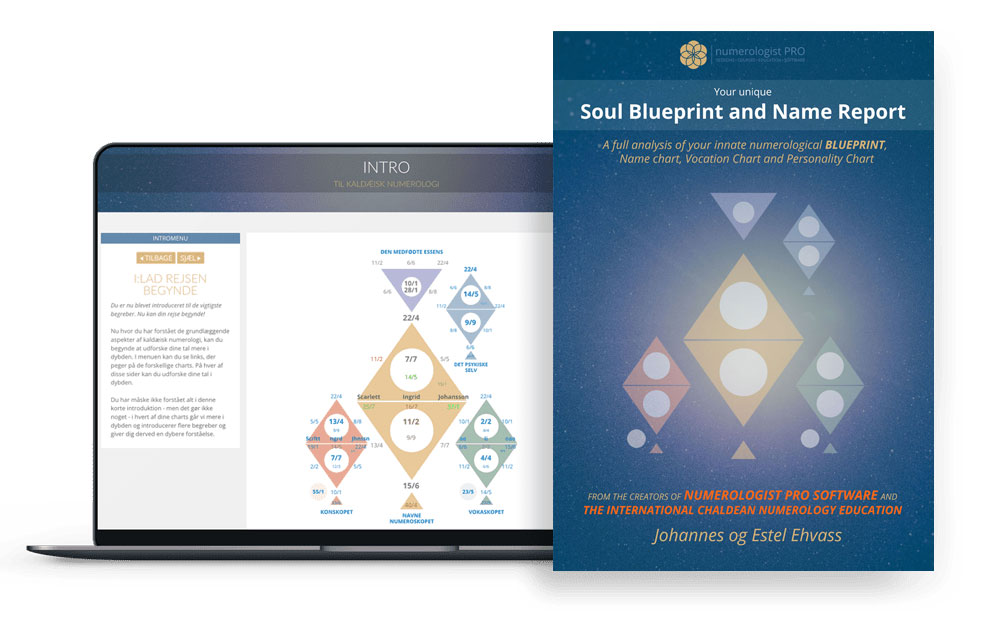Hellenistic Astrology

Estel Ehvass
Welcome, dear reader! Venturing into the world of Hellenistic astrology feels akin to stepping into a grand amphitheater where the stars narrate tales of ancient wisdom. Originating from the Hellenistic period of ancient Greece, this form of astrology is the foundation for many of the astrological systems we recognize today. What has always captivated me is its intricate blend of mathematics, philosophy, and spiritual insight. The Greeks, with their keen observations and profound understanding, created an astrological system that not only looked at the cosmos but also sought to explain the very essence of our souls. Join me as we delve into this fascinating realm, where celestial alignments speak of human experiences, and where the cosmos and character intertwine in the dance of destiny.
Hellenistic Astrology: An Insight into the Foundations of Western Astrological Thought
Introduction

Hellenistic astrology, originating from the fusion of Babylonian and Egyptian astrological practices with Greek philosophical thought, stands at the crossroads of history as one of the most influential and comprehensive astrological traditions.
Spanning from the late 2nd century BCE until the 7th century CE, this period bore witness to the consolidation of astrological techniques and theories that would heavily influence later Western astrological traditions.
Historical Context
The rise of Hellenistic astrology was precipitated by the conquests of Alexander the Great, which led to the blending of Greek culture with the ancient civilizations of Egypt and Mesopotamia. The city of Alexandria in Egypt became a focal point for intellectual and cultural exchange, making it a cradle for the synthesis of astrological knowledge.
Major Contributors and Texts
Claudius Ptolemy
Arguably the most influential figure in Hellenistic astrology, Ptolemy’s work, the ‘Tetrabiblos’ (or ‘Quadripartitum’), laid out the philosophical and technical foundations of astrology. While he didn’t invent the techniques he described, Ptolemy’s rational approach and attempt to align astrology with the natural sciences provided a framework that would be used and referenced by astrologers for centuries to come.
Vettius Valens
An astrologer who practiced in the 2nd century CE, Valens authored the ‘Anthology’, a ten-volume work that delved into various astrological techniques. His writings offer a glimpse into the actual practices and methodologies employed by astrologers of his time.
Dorotheus of Sidon
A seminal figure from the 1st century CE, Dorotheus is renowned for his didactic poem on astrology, ‘Carmen Astrologicum’. The work covers topics such as elections, horary, and mundane astrology, and it integrates Mesopotamian astrological traditions with newer Hellenistic concepts.
Key Concepts and Techniques
The Zodiac and Houses
Building upon Babylonian traditions, the Hellenistic astrologers adopted the twelve-sign zodiac, with each sign corresponding to 30 degrees of the ecliptic. Furthermore, the concept of astrological houses — areas of life activity or spheres of experience — was refined during this period. Different house systems, like the Whole Sign and Equal House, were established.
Planetary Rulerships
The planets were associated with specific zodiac signs, establishing a system of rulerships. For instance, Mars was traditionally associated with Aries and Scorpio, while Venus was linked to Taurus and Libra. These relationships emphasized the natural affinities and qualities shared between planets and their corresponding signs.
Aspects
The spatial relationships between planets, known as aspects, were fundamental to Hellenistic astrology. The major aspects included conjunctions, sextiles, squares, trines, and oppositions. Each of these had particular interpretative meanings, suggesting harmonious or challenging interactions based on geometric angles.
Lots or Arabic Parts
A unique feature of Hellenistic astrology was the use of Lots, arithmetical points calculated using the positions of two planets and the Ascendant. The most well-known is the Part of Fortune, but many others were utilized for various interpretative purposes.
Integration with Greek Philosophy and Culture
One of the hallmarks of Hellenistic astrology was its deep integration with prevailing Greek philosophical thought. The four elements (Fire, Earth, Air, and Water) and the three modalities (Cardinal, Fixed, Mutable) were adopted from Greek cosmology, adding layers of meaning to the zodiac signs. Moreover, the Stoic philosophy, emphasizing the interplay of fate and free will, found resonance in astrological interpretations. The cosmos was seen as an ordered, interconnected system, with humanity influenced by, yet possessing agency within, this cosmic order.
Decline and Legacy
By the end of the Hellenistic period, the rise of Christianity began to challenge the prevailing astrological paradigm. Christian authorities, wary of the deterministic aspects of astrology, often criticized and suppressed its practice. However, the legacy of Hellenistic astrology persisted. The Arab scholars of the Islamic Golden Age preserved many Hellenistic texts, leading to a renaissance of this knowledge in Medieval Europe.
Conclusion
Hellenistic astrology represents a golden era of astrological development, where traditions from diverse cultures were synthesized into a coherent and rich system. Its techniques and concepts form the bedrock of modern Western astrology. The interplay of fate and free will, the intricate dance of planetary influences, and the quest for self-understanding through the stars remain as pertinent today as they were in the times of Ptolemy and Valens.

Johannes & Estel: Renowned authorities in Numerology, Astrology, and the esoteric arts. As the founders of Scandinavia's premier Numerology school, we're delighted to share our insights through this curated series on astrology. Dive in and discover the stars.
The Worlds Most Advanced Numerology Report

Your birthdate reveals your unique life purpose, potentials, talents, weaknesses, and karma in this life.
Your names show what you attract into your life regarding your career, relationships, happiness, money, and success.
GET THE REPORT HERE
Introduction to Astrology
The history of Astrology
Moving beyond deterministic astrology
Foundation of Astrology: Planets, Signs and Houses
Astrology and the Holographic Universe
The Holographic Universe
The Human Psyche as a Mirror to The Solar System
The Human Body as a Mirror to The Star Signs
Astrology Background
Egyptian Astrology
Mayan Astrology
Chinese Astrology
Indian Astrology - Jyotish
Celtic Astrology
Tibetan Astrology
Mesopotamian Astrology
Early Mesopotamian Astrology: The Dawn of Celestial Divination
Enuma Anu Enlil: The Epicenter of Babylonian Celestial Omen Interpretation
Babylonian and Chaldean Astrology
Babylonian and Chaldean Astrology
Chaldean influence and evolution
Chaldean Wisdom: Safeguarding and Transmitting Astrological Knowledge
Hellenistic Astrology
Hellenistic Astrology background
Claudius Ptolemy and Tetrabiblos
Vettius Valens
Dorotheus of Sidon
Persian Astrology
Persian Astrology background
Sassanian Astrology
Late Antiquity and The Transition Period
Late Antiquity and The Transition Period
Hellenistic to Islamic Transition: The Torchbearers of Astrological Wisdom
Islamic Golden Age
Arabian Astrology Background
Arabian Astrology Contributions
Medieval Astrology
Introduction: The Medieval Cosmos
Monastic Preservers: Astrological Knowledge in the Dark Ages
Astrology in Medieval Medicine
Kings, Queens, and Constellations: Astrology in the Medieval Court
The Church and the Stars: A Contentious Relationship
Universities and Scholastic Pursuits: Academic Astrology
Astronomy & Astrology: Tools of the Trade
Medieval Astrological Houses and the Synthesis of Traditions
Transition to the Renaissance: Humanism and the Celestial Arts
Reflections: Medieval Astrology's Echoes in Modern Practice
Astrological Art of the Middle Ages
Famous Medieval Astrologers
Medieval Astrological Texts
Renaissance Astrology
Renaissance Humanism and Astrology
Scientific Advancements and Astrology
The Social Fabric: Astrology in Everyday Renaissance Life
Court Astrologers of the Renaissance
Controversies and Conflicts: Astrology Under Scrutiny
Renaissance Texts and Authors: Continuation of a Tradition
Astrology and Art: Celestial Imagery in the Renaissance
Renaissance Astrological Practices: Evolutions and Innovations
End of the Renaissance: The Gradual Decline of Astrological Influence
Renaissance Astrology's Echo in the Modern World
Enlightenment Astrology
Introduction: The Enlightenment and Astrology
Challenging the Stars: Astrology's Critics during the Enlightenment
Astrology and the New World
Astrology in the 19th Century
The Dawn of Psychological Astrology
Astrology in the 20th Century: A Modern Renaissance
Astrological Associations and Schools
Modern Controversies and Astrology
Astrology and Popular Culture
Astrology and Technology
Current Trends and Future Directions in Astrology
Conclusion: Reflecting on Astrology's Evolution
The Planet Significances
The Sun in Astrology
The Moon in Astrology
Mercury in Astrology
Venus in Astrology
Mars in Astrology
Jupiter in Astrology
Saturn in Astrology
Uranus in Astrology
Neptune in Astrology
Pluto in Astrology
Chiron in Astrology
Black Moon Lilith in Astrology
Pars Fortuna in Astrology
Ceres in Astrology
Houses in Astrology
Introduction to Astrological Houses
The Angular Houses
The Succedent Houses
The Cadent Houses
The 1st House
The 2nd House
The 3rd House
The 4th House
The 5th House
The 6th House
The 7th House
The 8th House
The 9th House
The 10th House
The 11th House
The 12th House
Interaction Between Houses
Derived Houses, House Rulers, and Interceptions
Conclusion: Synthesizing House Knowledge
All Materials © 2023 & 2024 Numerologist PRO
Terms of Service: Information provided by Numerologist PRO and/or from this web site is not intended as advice (medical, psychological, financial or other), nor is it intended to replace your work with a qualified professional (medical or otherwise). You should maintain your relationship with your providers and consider the services of this site as informational only. Any information, stories, examples, or testimonials presented on this website do not constitute a warranty, guarantee, or prediction regarding the outcome of an individual. This web site is a sharing of knowledge and information of numerology/energy work based on the experiences of Numerologist PRO. You are encouraged to make your own decisions based on your own research and inner guidance. By booking and receiving services, you agree to fully release and hold harmless Numerologist PRO and all it's affiliated numerologists from and against any liability or claim that may arise out of or in connection with their service(s).
Numerologist PRO © 2021

CONTACT
numerologist@numerologistpro.com
LIKE US, and get free numerology tools, info about your personal numbers, best business dates of the year - and more!
YOUR FREE NUMEROSCOPE CHART
Enter your name and email below and get access to our free online numerology chart tool.